Research Collections and Support
Libraries are increasingly leveraging the raw materials of scholarship and knowledge formation by emphasizing the creation and curation of institutional research assets and outputs, including digitized special collections, research data, and researcher profiles. Our work informs current thinking about research collections and the emerging services that libraries are offering to support contemporary modes of scholarship. We are encouraging the development of new ways for libraries to build and provide these types of collections and deliver distinctive services. Our efforts are focused in the following three areas:
Publications
Narrow by
-
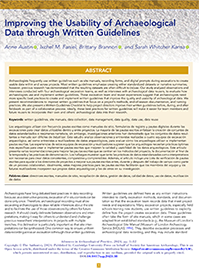
Improving the Usability of Archaeological Data through Written Guidelines
25 January 2024
Anne Austin, Ixchel M. Faniel, Brittany Brannon, and Sarah Whitcher Kansa
Our study analyzed observations and interviews conducted with four archaeological excavation teams, as well as interviews with archaeological data reusers, to evaluate how archaeologists use and implement written guidelines.
-
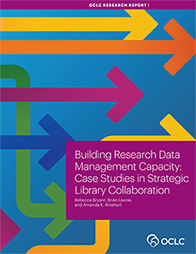
Building Research Data Management Capacity: Case Studies in Strategic Library Collaboration
11 December 2023
Rebecca Bryant, Brian Lavoie, Amanda K. Rinehart
Provides recommendations about collaborating to acquire RDM capacity based on three case studies of existing partnerships that empower libraries to build successful and sustainable collaborations.
-
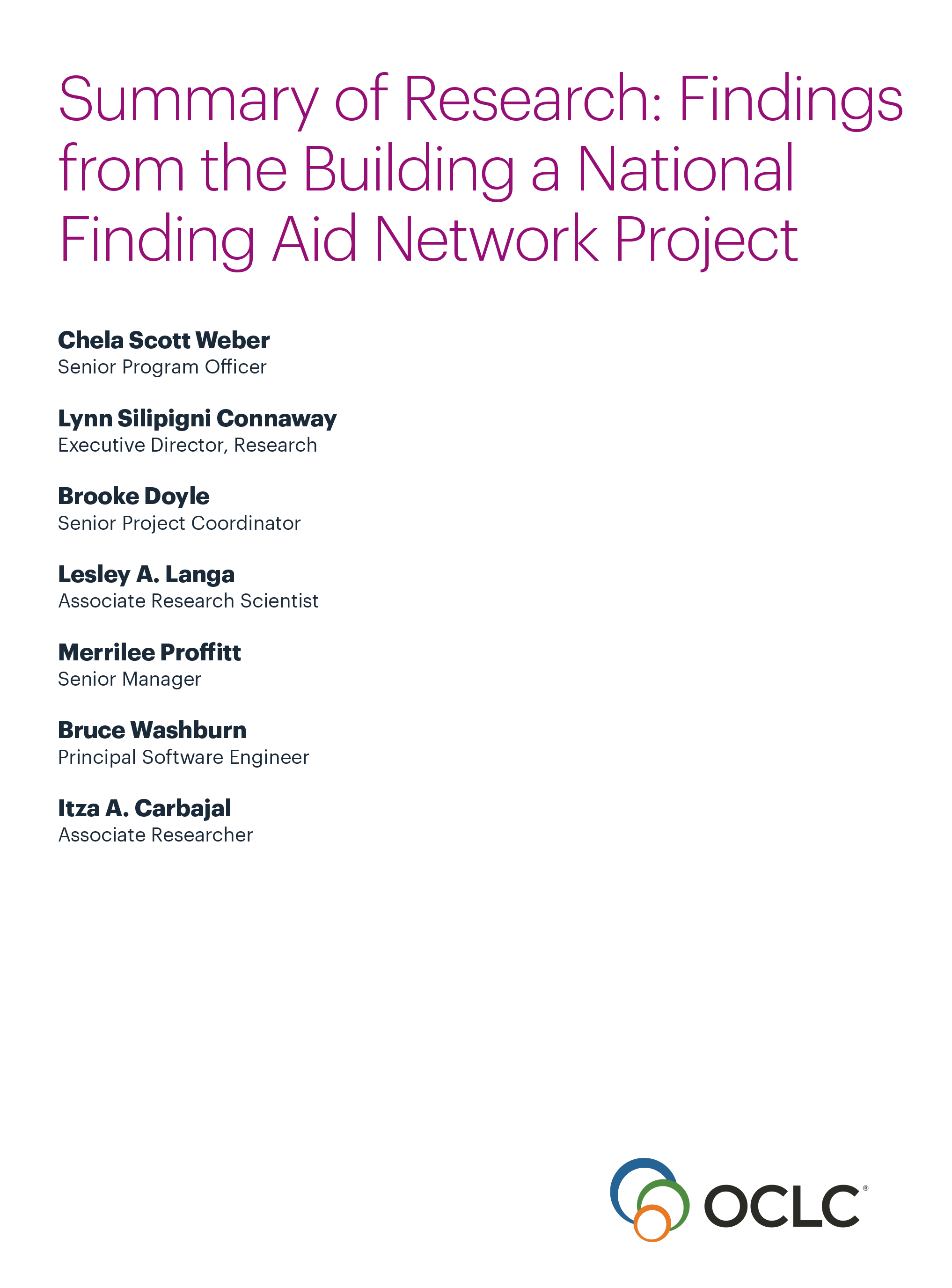
Summary of Research: Findings from the Building a National Archival Finding Aid Network Project
31 May 2023
Chela Scott Weber, Lynn Silipigni Connaway, Brooke Doyle, Lesley A. Langa, Merrilee Proffitt, Bruce Washburn, Itza A. Carbajal
Synthesizes OCLC’s findings for the Building a National Finding Aid Network project. The research investigated end user and contributor needs for finding aid aggregations and evaluated EAD encoded finding aid data quality and consistency from existing regional archival aggregators.
-
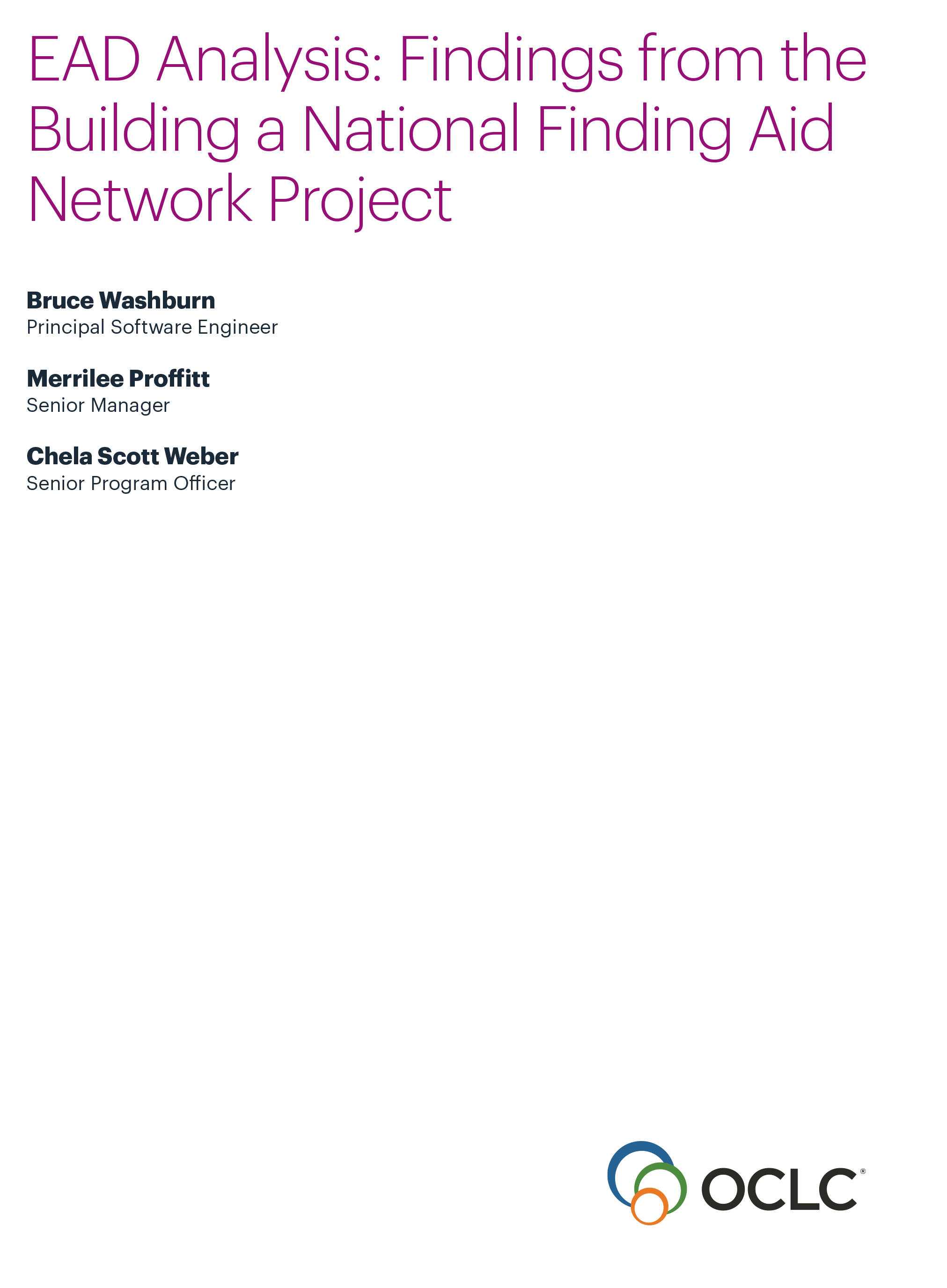
EAD Analysis: Findings from the Building a National Archival Finding Aid Network Project
30 May 2023
Bruce Washburn, Merrilee Proffitt, Chela Scott Weber
Analyzes a corpus of EAD encoded collection descriptions provided by regional finding aid aggregators in the US to assess existing EAD data as raw material for building a national finding aid aggregation.
-
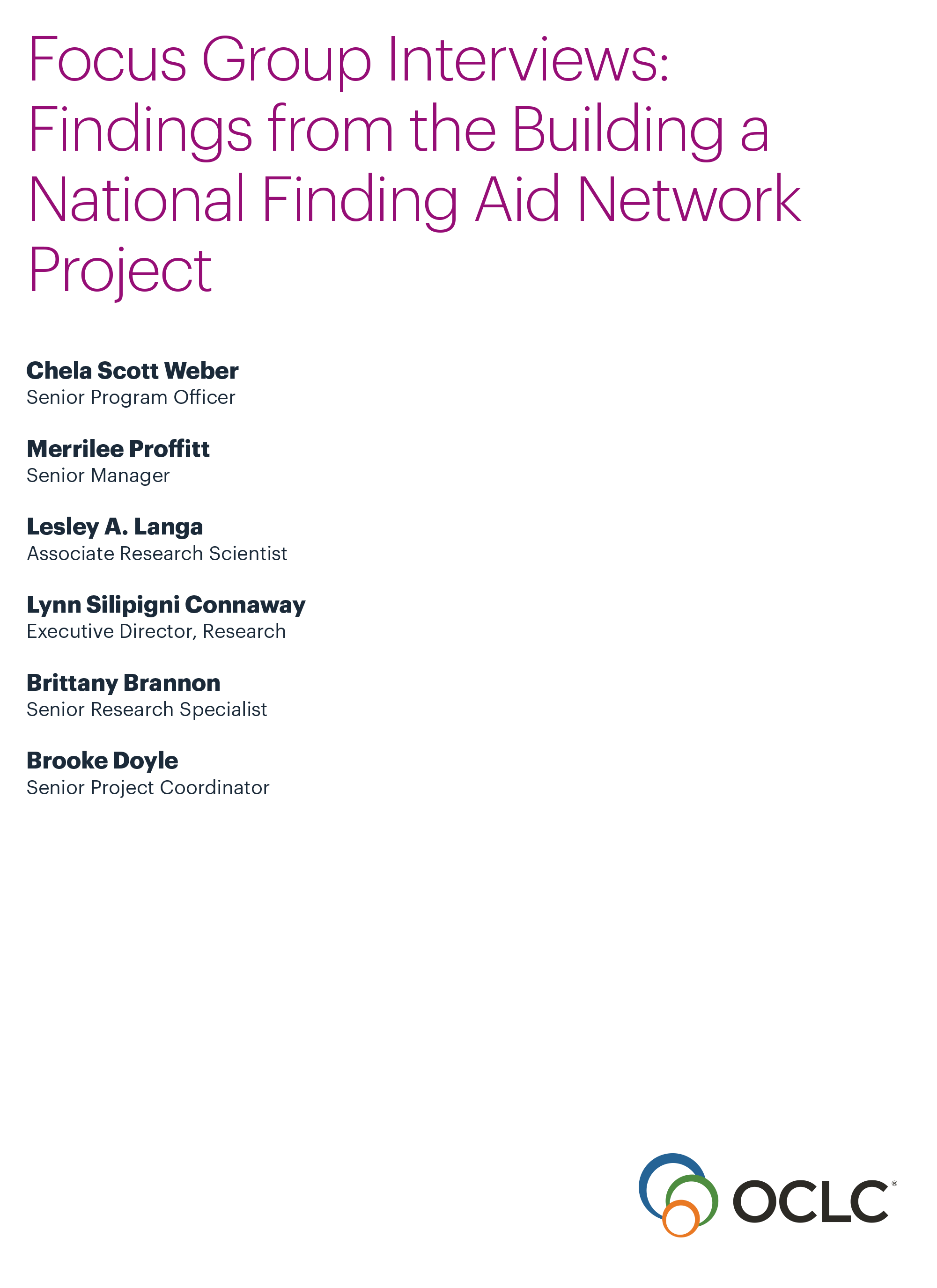
Focus Group Interviews: Findings from the Building a National Archival Finding Aid Network Project
30 May 2023
Chela Scott Weber, Merrilee Proffitt, Lesley A. Langa, Lynn Silipigni Connaway, Brittany Brannon, Brooke Doyle
Investigates the needs of archivists and others who might contribute to a national archival aggregator through focus group interviews with archivists and archives administrators from across the United States.
-
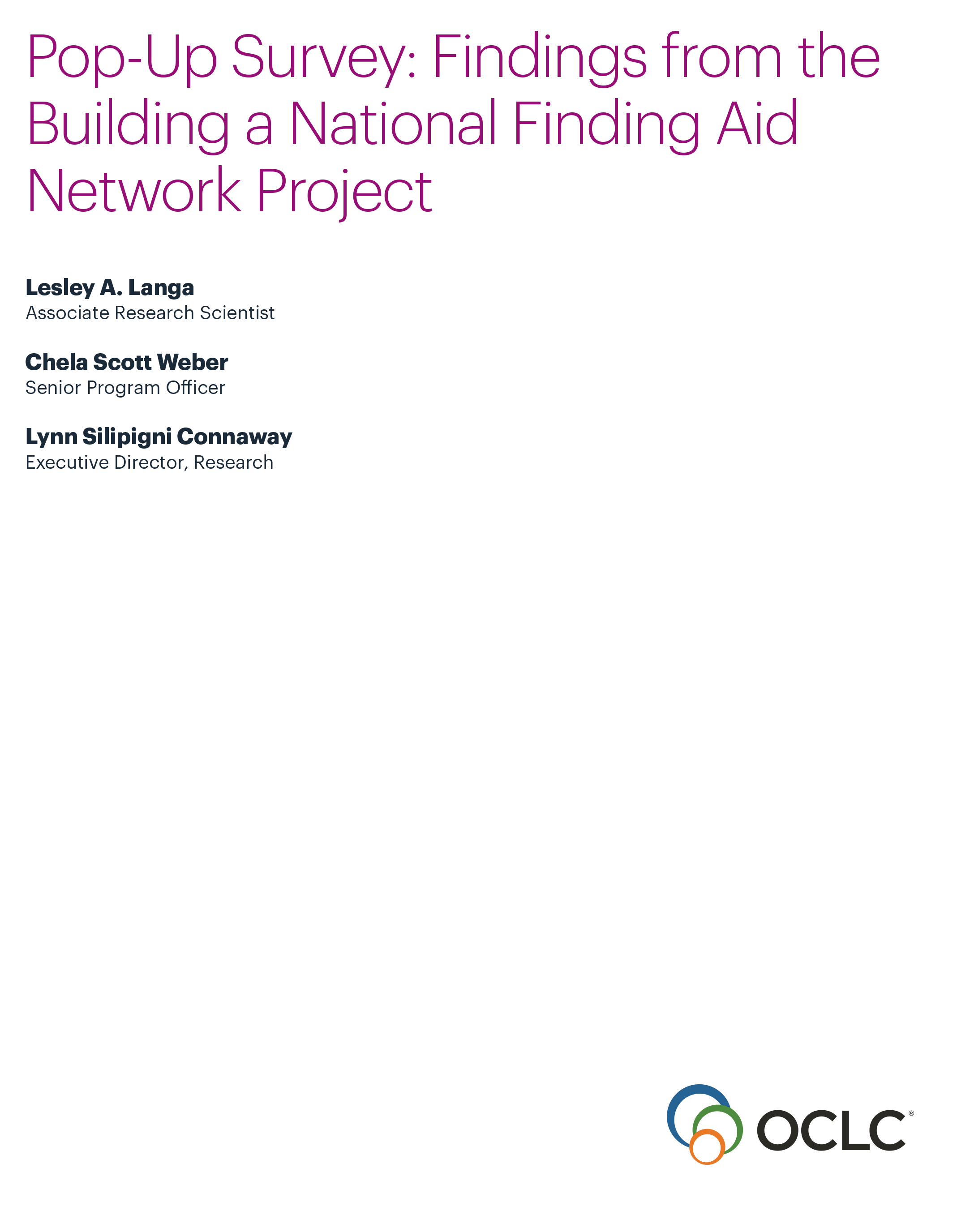
Pop-up Survey: Findings from the Building a National Archival Finding Aid Network Project
30 May 2023
Lesley A. Langa, Chela Scott Weber, Lynn Silipigni Connaway
Summarizes OCLC’s findings from a national survey of more than 3300 end users searching for archival materials online for the Building a National Finding Aid Project.
-
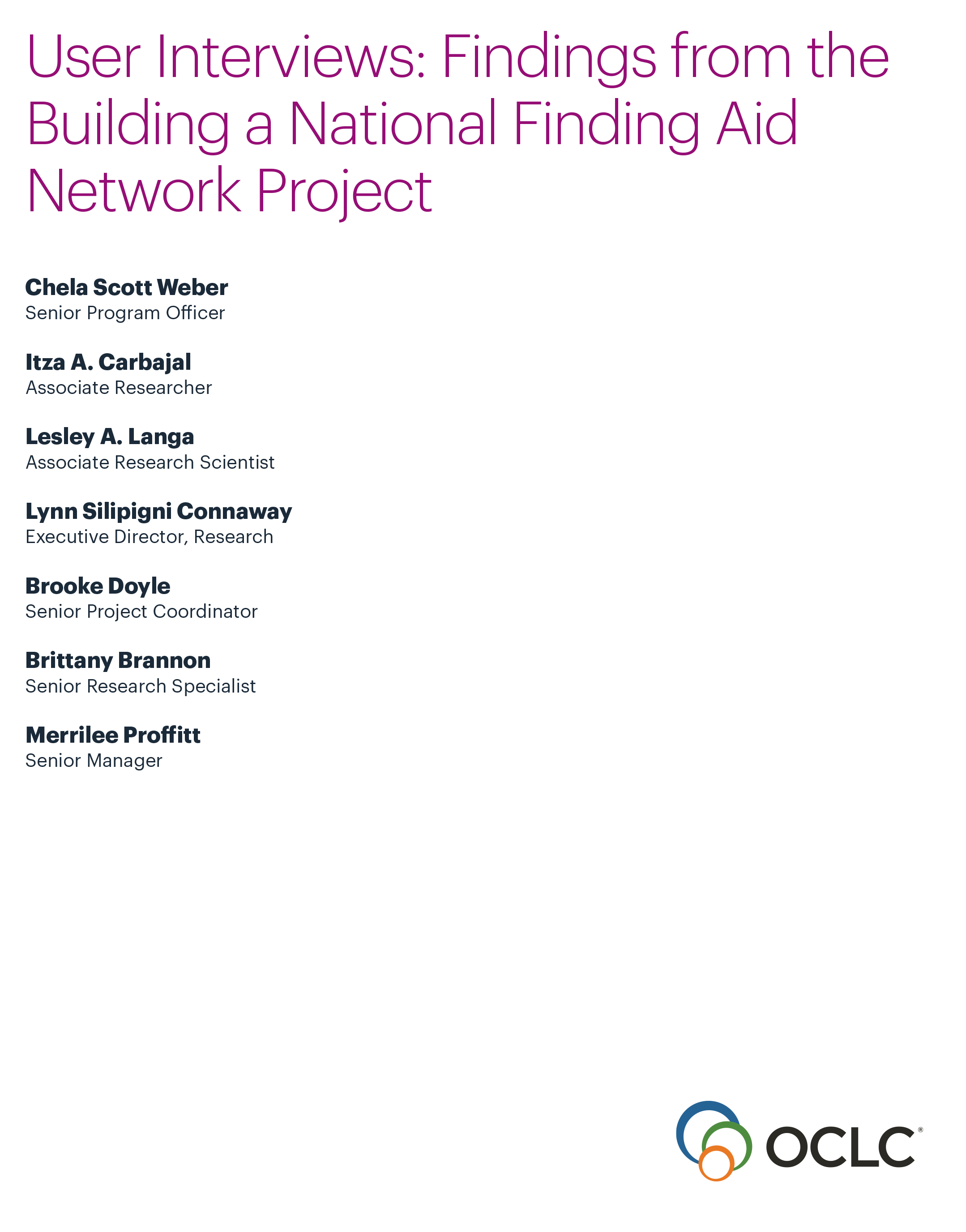
User Interviews: Findings from the Building a National Archival Finding Aid Network Project
30 May 2023
Chela Scott Weber, Itza A. Carbajal, Lesley A. Langa, Lynn Silipigni Connaway, Brooke Doyle, Brittany Brannon, Merrilee Proffitt
Details methods and summarizes findings from semi-structured individual interviews with end users of archival aggregation.
-
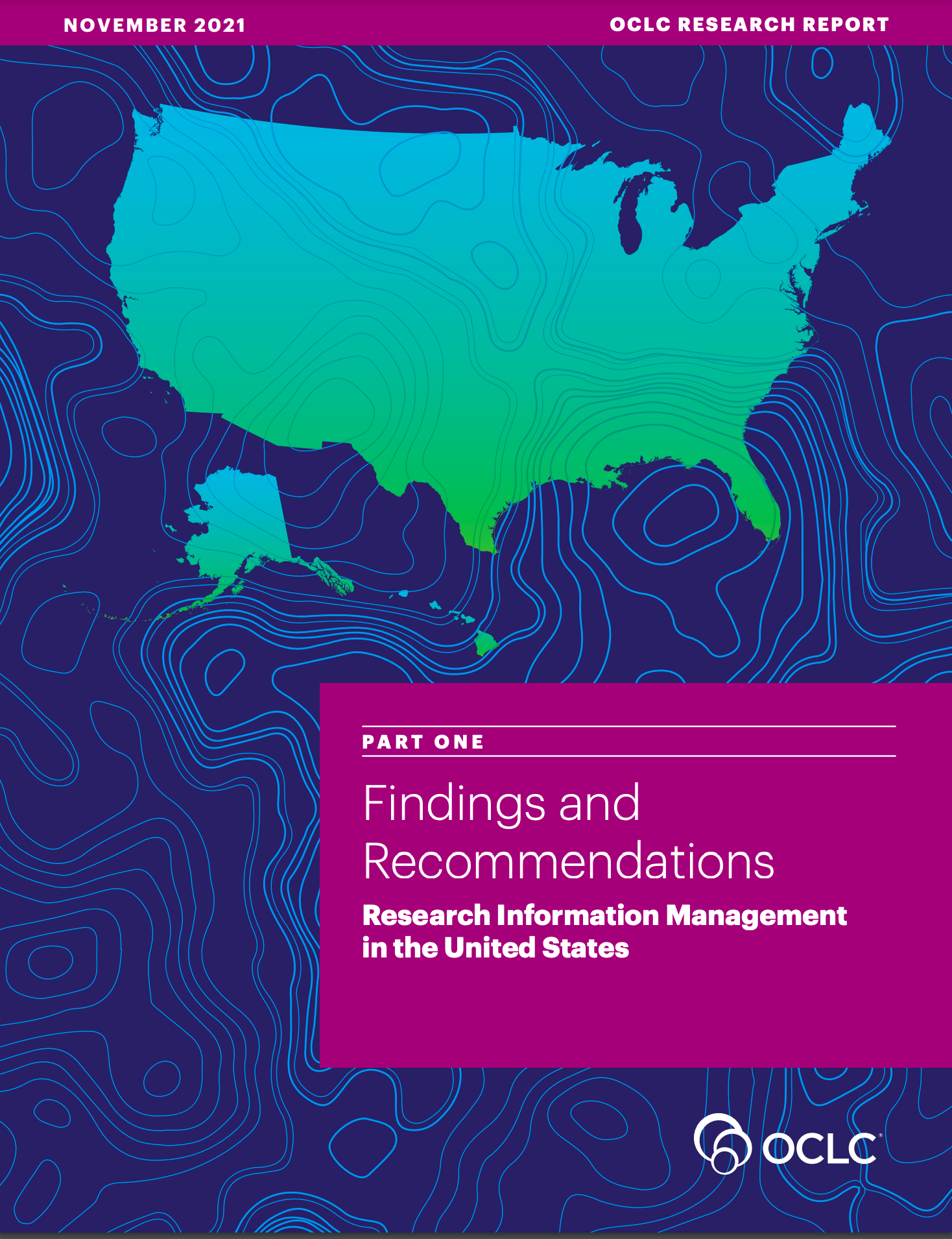
Research Information Management in the United States
11 November 2021
Rebecca Bryant, Jan Fransen, Pablo de Castro, Brenna Helmstutler, David Scherer
This two-part report series provides a first-of-its-kind documentation of research information management (RIM) practices at US research universities, presenting a thorough examination of RIM practices, goals, stakeholders, and system components.
-
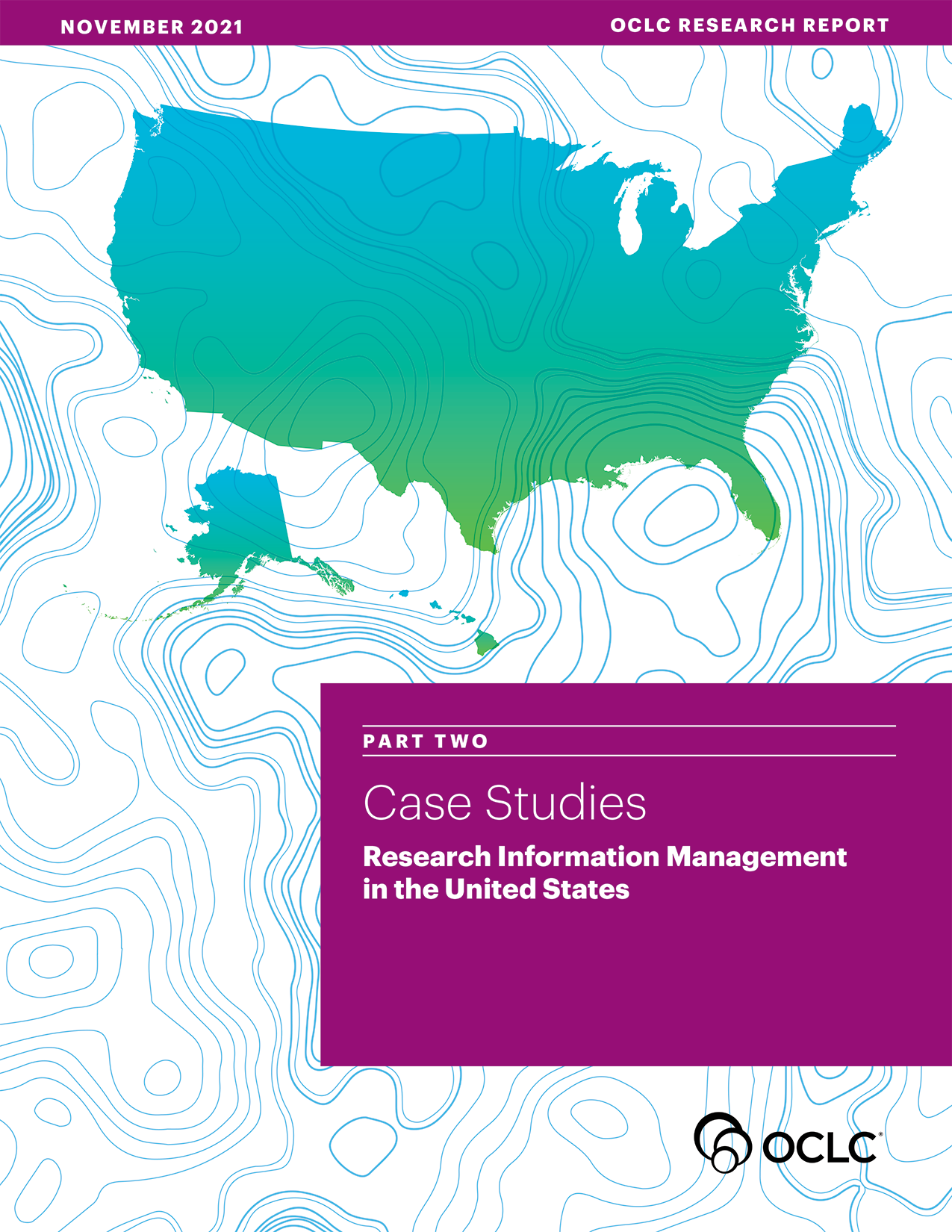
Research Information Management in the United States Part 2 - Case Studies
11 November 2021
Rebecca Bryant, Jan Fransen, Pablo de Castro, Brenna Helmstutler, David Scherer
This two-part report series provides a first-of-its-kind documentation of research information management (RIM) practices at US research universities, presenting a thorough examination of RIM practices, goals, stakeholders, and system components.
-
Using collective curation to pay data forward in the life cycle
11 June 2021
Ixchel M. Faniel
Drawing from a study of archaeological excavation teams, four collective curation opportunities are proposed to identify and resolve differences in data and documentation practices that arise in team-based research. To create more integrated, well-documented data, the opportunities attend to integrating people rather than technology. The actions people take as data move through the life cycle become the focal point of change.
